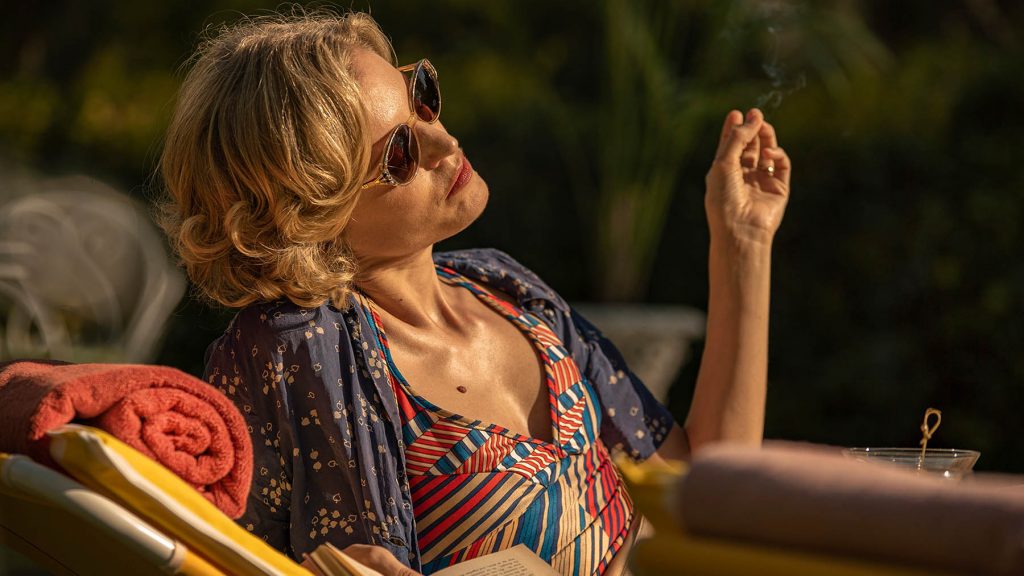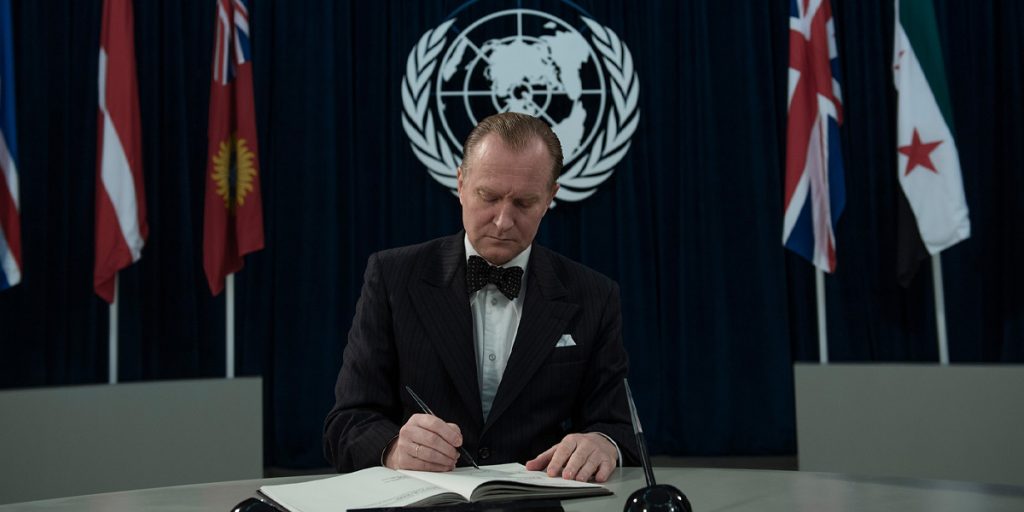A sharper focus on melodrama, rather than the fascinating career of its central figure, means The Good Traitor doesn’t quite fulfil its own potential.
It’s 1940 and Germany has invaded Denmark. Across the Atlantic ocean, in Washington DC, Danish Ambassador Henrik Kauffman (Ulrich Thomsen) states his intention to represent the free people of Denmark, rather than the Nazi occupation. Inspired by true events, Christina Rosendahl’s film dedicates some of its runtime to the logistical aspects of Kauffman’s career – the signing over of Greenland to the US, the political uproar from his autonomous decisions and disregard of the coerced Danish government, as well as the formation of the United Nations – and part to his personal life with wife Charlotte (Denise Gough, of Monday Dawns After Wild Weekend) and their children. And therein lies the problem.
The most interesting aspects of The Good Traitor are when the film focuses on Kauffman’s work, the behind-the-scenes chess moves, clandestine meetings, fraught discussions and the seedier aspects of trying to win a war. Which makes it so frustrating, then, when the film pulls back and centres the melodrama. Kauffman’s infidelity and his wife’s jealousy jar with the slickness of its political narrative, and the already glacial pace loses what little momentum it gained.
In one particular scene, wartime audio – news bulletins, chants of ‘Sieg Heil’ and the roaring of aeroplane engines – is overlaid on a scene in which Henrik and his family frolic by their pool, enjoying the glorious American sunshine. When the archival audio fades out, the issues of the day being discussed on screen are marital in nature, rather than political.

It’s evocative of the entire film: the war is forced to take a back seat to the personal issues in Kauffman’s life. Gough’s bitter, passive-aggressively angry wife is the most spirited of performances on offer, but she feels out of step with the rest of the film. The film does take care to highlight Kauffman’s historical achievements through scenes of expositional dialogue, but it appears to invest more of its energy into the love triangle between Charlotte, Henrik and Zilla (Zoë Tapper). As such, it ends up feeling a bit disjointed and lacklustre.
Aesthetically, the film feels accurate of its period. The handheld camera gives it an authenticity, as does the soundtrack, costuming and use of radio broadcasts, archival video and news bulletins. But the performances all feel a bit stilted, flat and off-kilter, which leaves the film at a bit of a remove from the audience. Kauffman’s life and career have great potential for engaging storytelling, but unfortunately The Good Traitor doesn’t quite live up to it.
The Good Traitor will be available to watch in US cinemas and on VOD on March 26, 2021.

